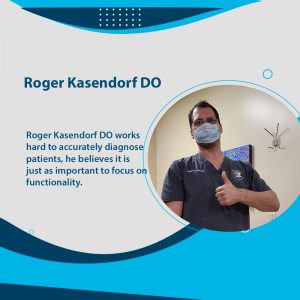Effective Strategies for Addiction Management


Addiction is a complex and challenging condition that affects millions of individuals worldwide. It encompasses a range of substance and behavioral dependencies, such as alcohol, drugs, gambling, or even technology. The impact of addiction can be devastating, not only for the individual but also for their loved ones. However, with the right strategies and support, addiction can be effectively managed with Addiction Management, allowing individuals to regain control of their lives and embark on a path of lasting recovery.
Understanding Addiction
Addiction is characterized by a compulsive and uncontrollable urge to engage in a particular behavior or consume a substance, despite its negative consequences. It is crucial to recognize that addiction is a chronic condition that requires long-term management rather than a quick fix. Approaching addiction as a disease empowers individuals to seek appropriate treatment and support.
Holistic Approach
Addiction management is most effective when approached holistically, addressing not only the physical aspects but also the psychological, emotional, and social factors that contribute to addictive behavior. A comprehensive treatment plan typically involves a combination of therapies, support groups, and lifestyle changes.
The first step in addiction management is to seek professional help. Qualified healthcare professionals, such as addiction counselors, therapists, and doctors, can provide a proper diagnosis, evaluate the severity of the addiction, and design an individualized treatment plan. They may recommend different interventions, including detoxification, medication, or therapy, depending on the specific needs of the individual.
Therapy and Counseling
Therapy and counseling play a vital role in addiction management. Cognitive-behavioral therapy (CBT), for example, helps individuals identify and change negative thought patterns and behaviors that contribute to addiction. It equips them with coping mechanisms and strategies to deal with cravings, stress, and triggers.
Additionally, individual counseling or group therapy sessions provide a supportive environment where individuals can share their experiences, gain insights from others facing similar challenges, and develop a strong support network. Family therapy is also crucial, as it helps rebuild relationships, improve communication, and create a conducive environment for recovery.
Adopting a healthier lifestyle is essential for managing addiction. Regular exercise, a balanced diet, and sufficient sleep contribute to overall well-being and help reduce cravings and withdrawal symptoms. Engaging in hobbies and activities that provide a sense of fulfillment and purpose can also distract individuals from addictive behaviors.
Support Groups
Participating in support groups, such as Alcoholics Anonymous (AA) or Narcotics Anonymous (NA), offers a valuable network of peers who understand the challenges of addiction firsthand. Sharing stories, attending meetings, and having a sponsor provide encouragement, accountability, and a sense of belonging.
Dual Diagnosis and Co-occurring Disorders
It is not uncommon for addiction to coexist with other mental health conditions. In such cases, a dual diagnosis approach is essential. Treating both the addiction and the underlying mental health disorder simultaneously increases the chances of successful recovery. Integrated treatment plans, involving medication, therapy, and support, can address the complexities of dual diagnosis and ensure holistic care.
Relapse is a common challenge in addiction management, but it should not be viewed as a failure. Instead, it should be seen as an opportunity for learning and growth. Developing effective relapse prevention strategies is crucial for long-term recovery. Identifying triggers, developing coping mechanisms, and having a support system in place can significantly reduce the risk of relapse.
Addiction management is an ongoing process, and individuals benefit from continued support even after completing a formal treatment program. Aftercare programs, such as outpatient counseling, continued therapy, or sober living arrangements, provide the necessary support and guidance during the transition back to everyday life.
Addiction management is a challenging journey, but with the right strategies and support, it is possible to regain control and embrace a life of recovery. By adopting a holistic approach, seeking professional help, engaging in therapy and counseling, making lifestyle changes, joining support groups, addressing co-occurring disorders, and implementing relapse prevention strategies, individuals can effectively manage addiction and build a brighter future.
Remember, addiction is not a sign of weakness but a treatable condition. With the right tools and support, individuals can break free from the chains of addiction and embark on a path of healing, growth, and lasting recovery.
